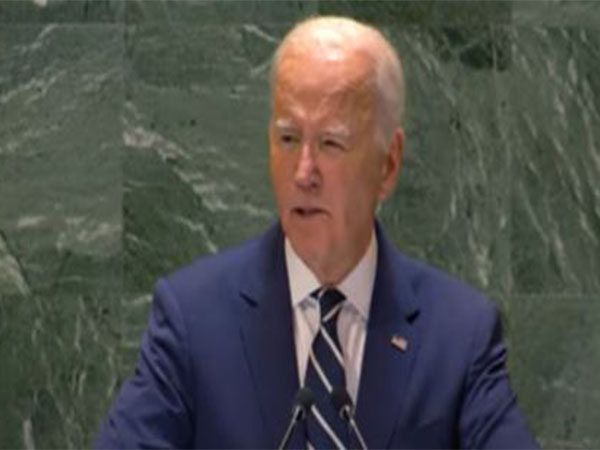Biden's Final UN Address: A Legacy of Diplomacy and Urgent Initiatives
In his last speech at the UN General Assembly, President Joe Biden emphasized U.S. priorities on Ukraine, West Asia, and global alliances, while reflecting on his decision not to seek a second term. He underscored the importance of democracy, peace, and international cooperation.

- Country:
- United States
By Reena Bhardwaj
On Tuesday morning in New York City, U.S. President Joe Biden delivered his final address before the UN General Assembly, culminating a long political career marked by a focus on foreign policy. Biden highlighted U.S. national security priorities such as supporting Ukraine against Russian aggression.
"The good news is Putin's war has failed at his core aim," Biden stated, pledging ongoing support for Kyiv until it achieves a "durable peace." The situation in West Asia dominated much of the UN conference. Biden expressed optimism about a ceasefire and hostage negotiations but noted the complexity a year after the October 7 Hamas attack on Israel. He urged that the "world must not flinch" from the horrors of that day, acknowledging the suffering of innocent civilians in Gaza.
"We've also been determined to prevent a wider war," the president asserted, noting Hezbollah's involvement and the continued displacement along the Israeli-Lebanese border. Biden opened with a humorous remark about his age, reflecting on the sweeping changes he's witnessed since first being elected in 1972. He emphasized the transformation of foes into allies over the decades.
Wrapping up, Biden spoke about not seeking a second term. "We must never forget who we're here to represent: the people," he said, stressing his commitment to democracy. He called for new leadership after 50 years of service, valuing country over personal power.
Beyond West Asia, Biden urged uniting against Russia's war in Ukraine and addressing China's growing global influence. "We are at an inflection point in world history," he declared, focusing on the long-term choices facing the international community. He praised the Quad—an alliance involving the U.S., Australia, India, and Japan—for its role in maintaining global stability.
On September 21, Biden hosted the fourth in-person and sixth overall Quad Leaders' Summit in Delaware, welcoming leaders including Japanese Prime Minister Fumio Kishida, Australian Prime Minister Anthony Albanese, and Indian Prime Minister Narendra Modi.
(With inputs from agencies.)
ALSO READ
Hypersonic Warnings: Russia's Strategic Signals to the West
Honoring Ambedkar: Champion of Democracy on Mahaparinirvan Diwas
Russia's Hypersonic Missile Tensions and U.S. Relations: Lavrov Speaks Out
Shadowed Lives: Russia's LGBTQ+ Community Under Siege
Ukraine's air force says it shot down 32 drones launched by Russia overnight










